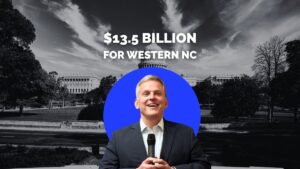A new report from the international nonprofit, Oxfam, highlights the continued rise in wealth among the richest Americans, even as economic inequality in the United States reaches new heights. Drawing on data from Forbes, the report outlines significant disparities in income and tax treatment between the country’s wealthiest individuals and the general population, according to NC Newsline.
According to the report, the ten richest U.S. billionaires increased their collective net worth by $365 billion over the past 12 months, despite broader market volatility. Oxfam notes that it would take a median U.S. worker more than 726,000 years to earn that amount. If those wealth gains were taxed as regular income, the individuals would collectively owe an estimated $135 billion in federal taxes.
The report also suggests that implementing a 3% annual tax on wealth over $1 billion could generate more than $50 billion annually from just ten of the richest individuals in the U.S. These funds that Oxfam states could fully fund the federal rental assistance program or provide a year’s worth of food aid to over 22 million people.
The individuals listed among the ten richest Americans include Steve Ballmer, Jeff Bezos, Sergey Brin, Warren Buffett, Larry Ellison, Elon Musk, Larry Page, Jim Walton, Rob Walton, and Mark Zuckerberg.
The report comes as both federal and North Carolina state lawmakers consider legislation that could have additional implications for the distribution of wealth and public services. In Washington, the U.S. House of Representatives recently passed a comprehensive tax and spending bill supported by former President Donald Trump and aligned with policy proposals from the Heritage Foundation’s Project 2025.
According to an analysis by the Center on Budget and Policy Priorities (CBPP), the bill includes tax cuts that would benefit high-income earners more than lower- and middle-income households. The CBPP reports that the top 1% of earners would receive tax cuts three times larger, as a share of income, than those in the bottom 60%. Additionally, the top 0.6%—Americans with annual incomes above $1 million—would receive a larger total tax cut than the 127 million people earning less than $100,000.
The bill would also reduce funding for key federal programs. The Congressional Budget Office estimates that proposed cuts to the Supplemental Nutrition Assistance Program (SNAP) would result in 3.2 million people losing food benefits, while shifting approximately $14 billion in costs to the states.
On the same day, the federal legislation passed the U.S. House by a narrow 215–214 margin. North Carolina’s House of Representatives approved its own version of a new state budget. While some Democratic leaders, including North Carolina Governor Josh Stein, have acknowledged parts of the House bill as more moderate than earlier Senate proposals, analysts warn the budget continues to prioritize tax reductions for corporations and high-income individuals.
The North Carolina Budget & Tax Center (BTC) reports that the House proposal includes a plan to gradually eliminate the state’s corporate income tax, a change that would reduce state revenue by an estimated $235 million over the next two years. According to BTC, 94% of the benefits from that change would go to out-of-state entities.
The fate of both the federal and state budget proposals remains uncertain. In Washington, the U.S. Senate may make changes to soften some of the proposed cuts. In North Carolina, the state Senate is expected to push for further revisions, which could trigger negotiations with the House and the governor’s office. While Democratic lawmakers in North Carolina could block a final budget by sustaining a gubernatorial veto, it remains unclear whether such a strategy will succeed.
Despite calls from groups like Oxfam to implement new taxes on extreme wealth, there appears to be little momentum in either Congress or state legislatures to pursue such policy changes at this time.





